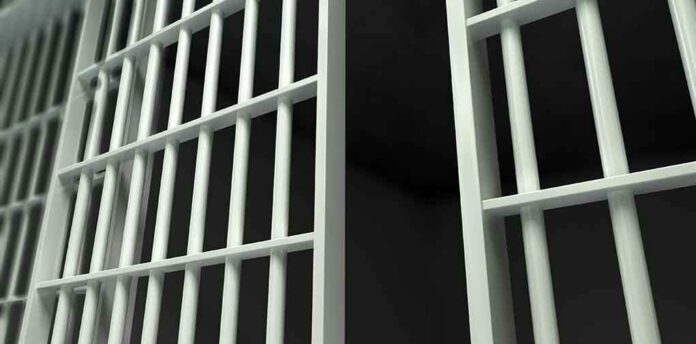
Louisiana prison guards forcibly shaved a Rastafarian inmate’s dreadlocks despite a court order protecting his religious rights, and now the Supreme Court will decide if officials can be personally sued for damages.
Key Takeaways
- The Supreme Court will hear Damon Landor’s case challenging whether prison officials can be sued for damages under RLUIPA after forcibly cutting his religiously required dreadlocks.
- A prison guard discarded Landor’s court order protecting his religious rights before cutting his hair during the final weeks of his sentence.
- The Trump administration supports Landor’s appeal, while Louisiana officials warn that allowing individual liability could worsen prison staffing shortages.
- The Court’s decision could impact religious freedom protections for over one million incarcerated individuals across the country.
- Arguments will be heard in fall 2025 with a decision expected by summer 2026.
Religious Rights Violated Despite Court Protection
Damon Landor, a former Louisiana inmate and practicing Rastafarian, had his dreadlocks forcibly shaved at Raymond Laborde Correctional Center during the final three weeks of his five-month sentence. The incident occurred despite Landor carrying a court ruling protecting his religious practice, which prison guards allegedly discarded before cutting his hair. As part of his Rastafarian faith, Landor had taken a Nazarite Vow “to let the locks of the hair of his head grow,” a religious commitment that was violated by prison authorities who enforced facility grooming policies.
The case, officially titled Landor v. Louisiana Department of Corrections (23-1197), centers on whether prison officials can be held personally liable for damages under the Religious Land Use and Institutionalized Persons Act of 2000 (RLUIPA). While the 5th U.S. Circuit Court of Appeals acknowledged Landor’s mistreatment, it ruled that current law doesn’t allow for damages against individual prison officials. This interpretation effectively left Landor without any remedy for the violation of his constitutional rights.
Trump Administration Backs Religious Freedom Claims
President Trump’s administration has thrown its support behind Landor’s appeal, arguing that without the ability to seek damages, the religious protections guaranteed by RLUIPA become essentially meaningless. The case represents a critical test of how religious freedoms are protected in correctional facilities and whether inmates have meaningful recourse when those rights are violated. Four Supreme Court justices have already voted to hear Landor’s appeal, with oral arguments scheduled for the Court’s next term beginning in October.
“The denial of a damages remedy to vindicate RLUIPA’s substantive protections would undermine that important purpose. And the circumstances precluding relief here are not unique,” stated Solicitor General D. John Sauer.
Landor’s attorneys have emphasized the broad implications of this case, noting that over a million people are currently incarcerated in state prisons and local jails across the country. If the circuit courts’ current interpretation stands, all these individuals would be denied meaningful remedies for religious rights violations, potentially undermining the very purpose of RLUIPA’s protections for institutionalized persons.
Louisiana Officials Warn of Staffing Consequences
Louisiana’s Department of Corrections has opposed the Supreme Court taking up this case, noting there is no circuit court split on the issue. State officials have also warned that allowing personal liability for prison staff could exacerbate existing staffing shortages in correctional facilities. The state has since amended its prison grooming policy to prevent similar incidents, though this change came too late for Landor. The outcome of this case could establish a new precedent for religious accommodations in prison settings nationwide.
“Serious consequences would flow from Petitioner’s view, if adopted. For example, the current staffing shortage in state prisons would only grow worse if current staff and potential job applicants learned that they would be personally liable for money damages,” argued lawyers for the state.
Landor’s legal team counters that the current interpretation renders RLUIPA’s protections hollow. They point to the 5th Circuit’s ruling, which, while condemning the treatment Landor received, still dismissed his claims and left him without relief. In their appeal, they argue this outcome demonstrates precisely why Supreme Court intervention is necessary to ensure religious liberty protections have meaningful enforcement mechanisms behind them.
Broader Implications for Religious Freedom
The Rastafari faith, which originated in Jamaica in the 1930s, combines Old Testament teachings with a desire to return to Africa and has been popularized globally by musicians like Bob Marley and Peter Tosh. Adherents often maintain dreadlocks as an expression of their spiritual beliefs. This case represents just one example of the tensions that can arise between institutional regulations and individual religious practices in correctional settings. The Court’s decision could establish important precedent for how prisons must accommodate various religious practices.
“Without a damages remedy, RLUIPA’s promise was empty. The panel could respond only by writing in italics that it ’emphatically condemned [ed]’ Landor’s mistreatment, as it dismissed his claims and left Landor with no relief whatsoever. That is a telltale sign that this Court’s intervention is needed,” argued lawyers for Landor.
The Supreme Court’s upcoming decision will have significant ramifications not only for Landor but potentially for all incarcerated individuals seeking to practice their faith. The case also highlights a similar situation involving Sanjay Tripathy, a devout Hindu whose religious rights were allegedly violated by New York officials. Tripathy’s case remains on hold pending the outcome of Landor’s appeal, demonstrating how the Court’s decision could affect religious accommodations across different faith traditions in correctional facilities nationwide.












